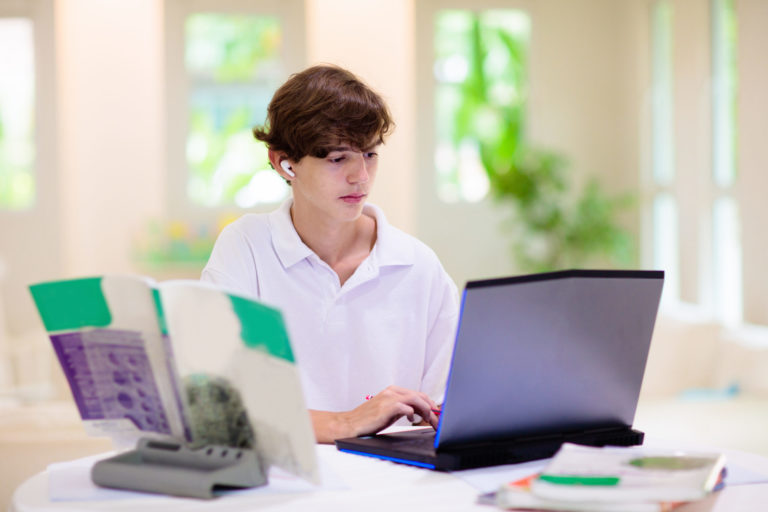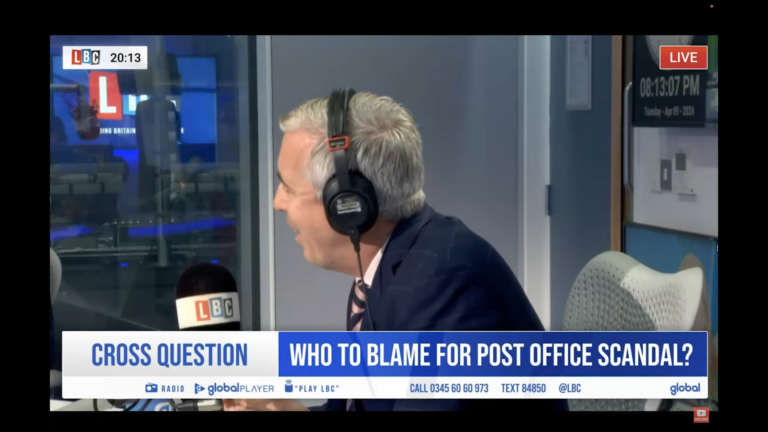The Prime Minister’s announcement this week confirmed what many of us had long suspected; schools will remain closed until the spring, with a provisional date of 8 March outlined as the earliest that they could open.
It’s been one of the greatest challenges of Covid-19; the constantly evolving state of play with the virus has meant unknown and uncertainty for all of us around new lockdowns and sudden school closures. Kitchen and dining tables have become the new classroom/working from home office in many homes up and down the country, with school children and parents stuck in a limbo state as they await news on when we will see a return to the physical classroom.
It’s placed tremendous pressure on teachers and families, but if there is one thing we can be certain of now; remote learning is here to stay for the foreseeable future. It is time to move away from distance learning as an emergency measure and see it as a more long-term solution, or as part of a new blended learning approach, as we continue to navigate Covid-19. With that in mind, it’s essential that we support and improve the remote learning experience to create a more sustainable offer for teachers, students and parents.
No “one-size fits all” approach
Every school is different and will have its own requirements and challenges when it comes to distance and remote learning. Methods that work well for a small school supporting SEND pupils, for example, might not necessarily be the same for a large multi academy trust serving students in a disadvantaged area. It is therefore up to each school to consider the needs of its students and teachers and take on board the feedback and key learnings from previous school closures, to identify the resources needed and help determine a long-term distance learning strategy.
For example, younger children might need more regular contact with teachers to help them stay engaged and on track with their learning, which might mean ensuring some form of either pre-recorded or live digital lesson each day. If parents are particularly struggling to help their child with home learning, then schools might want to consider developing a bank of dedicated resources to help parents find the answers to common queries. This would also free up staff to focus on the education delivery and meeting students’ needs.
While each school is different, that is not to say that fellow headteachers and teachers cannot learn from one another. Now more than ever, it’s important that schools are communicating with one another and sharing top tips and best practice for remote learning. Learning from Lockdown, for example, is a great resource with first-hand blogs and case studies from schools and teachers sharing their insights from remote learning, with the ultimate aim of improving education going forward. This is also useful for teachers who might be feeling isolated during this period, to share their concerns with peers who are having similar experiences. Improved communication and collaboration can only benefit the sector as a whole.
We cannot forget that this is a totally new and difficult experience for everyone. Continuous assessment of the remote learning experience, especially student engagement and staff wellbeing, as well as regular communication with teachers, students and their parents or guardians to determine what is working well and what needs improvement, will all help schools towards developing a more stable remote learning offer.
Addressing the digital divide
With distance learning here to stay, time is of the essence to address the glaring inequalities around access to digital devices and broadband, if we want to avoid widening the attainment gap further between privileged and disadvantaged students. Around 9 per cent, or 1.1-1.8 million, families in the UK currently do not have access to a digital device at home, and over 880,000 of households only have mobile internet connectivity according to Ofcom. With virtual learning platforms an effective way for students to not only continue learning, but stay connected with teachers and friends remotely, immediate action is needed to make sure all children have access to digital devices and internet.
The BBC recently announced that it would be broadcasting regular lessons on TV to support families who might not be able to afford broadband data for accessing online lessons. Oak National Academy, the online classroom, also recently partnered with BT to provide free data use for customers accessing the online lessons via its mobile networks, with many other edtech providers playing their part by providing free access to platforms and resources during Covid-19. It’s up to the Government to work alongside these organisations and ensure that every child in the UK has equal access to a computer or tablet, and a good internet connection to continue their education.
Praise and support for teachers
Teachers have become well-versed during this period with rapid switching between remote learning, in-school teaching and blended learning, yet all this has taken a huge toll on staff mental health, not to mention their already overstretched workloads. A recent Ofsted report into remote education found that these “mixed delivery situations” having been posing a threat to teachers’ emotional wellbeing, with over four-fifths of teachers polled in an Ofsted YouGov survey confirming that the amount of work on their plates had increased since they began remote teaching.
Recently, the headteacher of London-based Woodridge Primary School wrote a letter to parents where he expressed that, while receiving supportive and constructive feedback from parents is always welcome and valuable for the school to “improve our offer as we go along”, “a number of parents have taken advantage of this new access to send highlight critical messages of advice to teachers about how to do their jobs and questioning their training, skills and competence.” In response to this, the headteacher directed parents to a UCAS link where they could re-train as teachers themselves.
Teachers, like many of us getting to grips with working from home and new technologies, are not Zoom or Google classroom experts, nor should they be expected to be. However, what teachers do excel in is what they are trained for – delivering high-quality teaching. It’s important that we remember the incredible work that teachers are doing, and trust in them to help students get back on track with their learning, so long as we are helping teachers with the right tools and support. Whether that’s CPD training on utilising new online learning platforms, accredited qualifications for Teaching Online, mental health wellbeing resources to support teachers, or simply greater empathy and understanding of the extraordinary situation schools and teachers find themselves in with remote learning.




